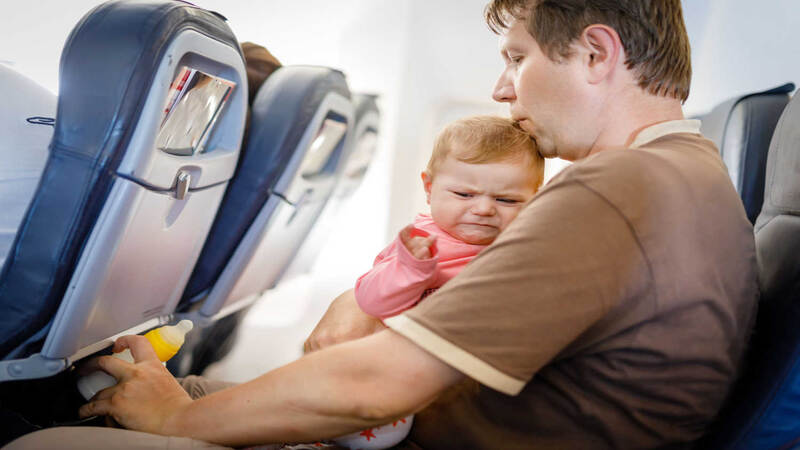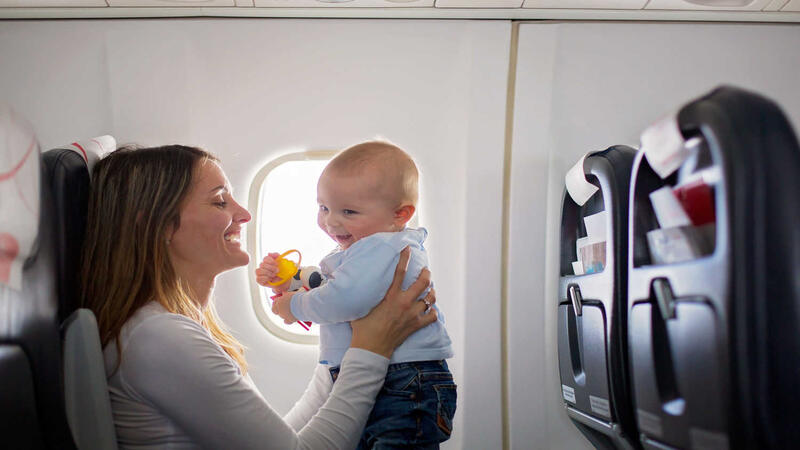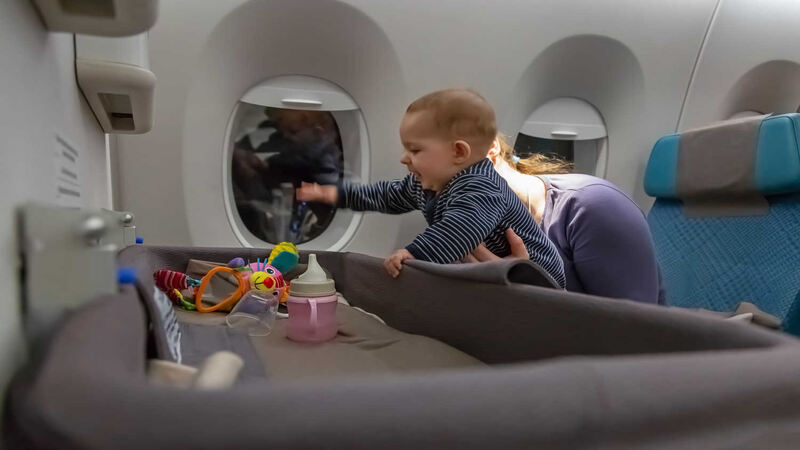
Small time shifts during travel typically won’t disrupt your sleep much, but young babies tend to get restless. Your infant may have difficulty falling asleep or staying asleep due to jet lag following a long flight for vacation or visiting relatives. Jet lag in babies is as common as in adults. So, you may have to be careful and keep this in mind.
The good news is that you won’t have to cancel your next vacation. There are ways to help your baby deal with these situations. Here we explain how you can identify the signs of jet lag in babies and how you can help your little one overcome restlessness and discomfort and adjust to the difference in timings.
What is Jet Lag?
Failing to fall asleep after crossing many time zones is known as jet lag. This is typical of trips that take you across two or more time zones in a short length of time. Even though their bodies are smaller and their brains are still developing, babies with jet lag have the same disorganized sleep pattern and distorted sense of time as adults.
Signs of Jet Lag in Babies

Your baby’s circadian rhythm, or internal clock, may be temporarily disrupted due to jet lag. It lasts about a week until they get used to the change and resume their regular sleeping schedule.
If you’re traveling with a baby, there are several telltale indicators that they may be suffering from jet lag:
- Wanting to sleep more throughout the day
- Extreme clinginess
- Waking up early
- Getting fussy
Babies under six months old may not be unduly affected by a shift of a few hours in their sleep schedule.
[Read : Top 5 Tips For Moms to Cope With A Clingy Baby]
How Long Can Jet Lag Last in Babies?
The time spent suffering from jet lag varies from one baby to another just as with adults. This also differs with the time zones and whether you are going ahead or behind your time zone. Fortunately, infant jet lag usually doesn’t linger as long as it does in adults. Traveling to a different time zone generally takes infants around three days to completely overcome jet lag and adapt to the new time zone.
Top 7 Tips to Overcome Jet Lag With Infants

As a parent who needs to travel with a baby, it is always a good idea to keep a kitty full of tips that will help you and your baby deal with the issues that crop up with time zone differences. Here are a few tips to help you overcome jet lag in babies.
1. Sleep Routine
Keep the same go-to-bed hour even while you’re away, However, that doesn’t mean everything has to be just how it is at home. Maintaining a sleep cycle will assist if you repeat the same steps in the same sequence. A bedding that has been previously slept on and a familiar blanket or toy might serve as a helpful sleep cue.
2. Natural Light
Natural light resets internal body clocks, When you arrive at your location or return home, giving your baby plenty of time in the daytime light may help everyone adapt.
3. Physical Activity
Getting fresh air and moving outside may do wonders. It may be helpful to wear yourself and your baby out physically by engaging in vigorous activity. Furthermore, it tells your body it is time to be awake and active. Finding a place at the airport where active infants and toddlers may burn off some energy before you go helps ease your journey and your arrival.
4. New Meal Timings
The timing of your meals may affect the timing of your biological clocks. Eating or snacking throughout the day may thus be quite beneficial. Give your infant its regular milk if they wake up hungry in the middle of the night, and for toddlers, it’s best to stick to light foods like bananas or oatmeal.
5. Night Travel

Plan on taking a flight at night. Your baby should be able to get some shut-eye and will hopefully be refreshed upon arrival. If everything else fails, simply go with the flow and relax.
6. Planning
If your destination isn’t too far away, you may want to keep your routine. For instance, traveling to Greece 2 hours earlier than GMT can allow you to maintain a 9 to 9 workday.
7. Trip length
It may be beneficial to acclimate to the new time zone gradually if the journey lasts for a while. It’s kind of like changing the time on your clock. To ensure your baby is well-rested and ready to go when you arrive at your location, you may adjust their bedtime (and other daily routines) by 15 minutes daily.
Adults and older children aren’t the only ones who may have jet lag; young babies can too. The bright side is that their jet lag is typically less severe, allowing them to return to normal sooner. You must be able to alleviate some of the signs of jet lag that your infant is experiencing with the help of these recommendations, allowing you to begin enjoying your vacation sooner.
[Read : Travel Checklist for Your Baby’s First Flight]
FAQ’s
1. Does Jet lag Cause Fever?
No, jet lag does not cause fever. It can cause symptoms such as daytime drowsiness, illness, difficulty remaining attentive, and gastrointestinal issues. If you have a fever, you might be sick and may need to consult a doctor for a possible infection.
2. Can Jet Lag Cause Gas?
Yes, your body travels through multiple altitudes and atmospheric pressures when flying. These changes in altitude and pressure can affect your digestive system. This can manifest in the form of gas and bloating.
Read Also: 12 Useful Tips To Travel Smart With Your Baby
